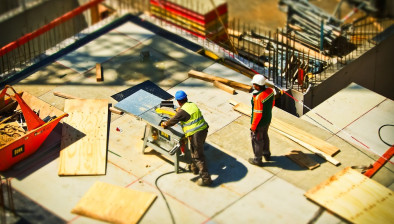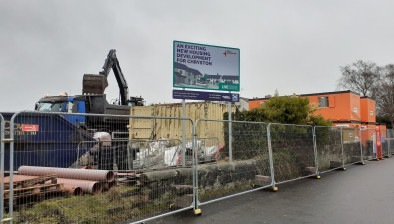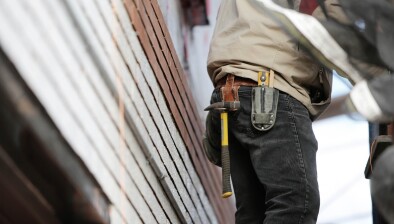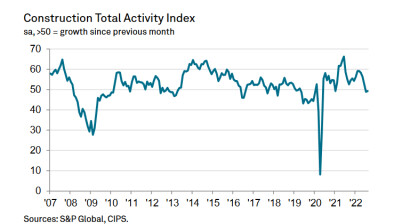Output continues decline as firms err on side of caution
Construction output in the UK decreased by 1.3% in the second quarter of 2019, largely reversing the increase of 1.4% in during January to March, latest Office for National Statistics (ONS) figures show.

ONS said the decrease was driven by a fall of 2.6% in repair and maintenance, which was due largely to the 6.0% decline in private housing repair and maintenance, with a smaller contribution from the 0.9% fall in non-housing repair and maintenance.
In new work, the decrease of 0.5% in the second quarter was driven by declines in public other new work and private new housing, with public other new work seeing its largest quarter-on-quarter decline since quarterly records began, with a fall of 10.9%.
Monthly construction output decreased by 0.7% due to a 2.0% decline in repair and maintenance along with flat growth (0.0%) in new work.
Cruden Building MD, Allan Callaghan, said Scotland’s construction industry needs to increase the number of people choosing to work in the sector if the falling output figures are to be reversed.
He added: “Scottish school pupils received their exam results just a few days ago so thoughts of future careers are top of mind. While many have aspirations to go to university, apprenticeships offer a very compelling alternative – providing valuable on-the-job experience and the ability to earn as you learn.
“This week saw thirteen new apprentices start with Cruden across a variety of trades and skills as they embark on a four-year programme. These direct apprentices will become part of our wider modern and graduate apprenticeship programme.
“We invest a lot of time and effort in developing a pipeline of talent and training employees across the business through our Cruden Academy and we recognise that apprentices really are the lifeblood of the industry to secure its continued growth.”
Mark Robinson, Scape Group chief executive, said: “Today’s data presents a grim outlook on the state of the construction industry, with a £521 million drop in activity on the quarter. We have seen the biggest quarter-on-quarter decline from the public sector since records began two decades ago – with local authorities both reluctant and unable to push forward with delivering new offices, schools, hospitals, surgeries and shops. The stark reality is both the public and private sector are continuing to err on the side of caution and new work has flatlined.
“This decline in output is not restricted to new work though, with the repair and maintenance of private housing falling by a staggering £325m. This significant drop comes at a time when we know 25% of homes in the private rented sector continue to be classified as non-decent, and we urgently need landlords across the country to review their housing stock and carry out essential repairs.
“The possibility of a vote of no confidence being tabled when parliament returns in September continues to increase, with there being a very real chance that we will crash out of the European Union in October while an election campaign is underway. This scenario is completely uncharted territory, but one thing is certain our economy continues to be affected by infighting in Westminster, our competitiveness on the world stage is being damaged each month, and the appeal of UK plc is falling.”
Blane Perrotton, managing director of the national property consultancy and surveyors Naismiths, added: “Bad just turned into worse. Finding good news in this unrelentingly bleak snapshot of the construction industry in the second quarter is needle in a haystack stuff.
“The brief flurry of stockpiling seen in the run-up to March now feels like a lifetime away.
“Stripped of that crutch, the second quarter brought pain upon pain. New work in the public sector plunged by more than a tenth, the largest quarterly fall ever seen.
“Private sector housebuilding – once a rare bright spot in an industry under siege elsewhere – saw its decline accelerate, and the omens for the future aren’t good either.
“With the forward-looking PMI suggesting that new orders are drying up and sentiment is on the floor, construction could soon be in a race with manufacturing for the unwanted accolade of being the first sector of the UK economy to enter recession.
“At this rate, that is one of the few things that will be achieved by October 31st.”














